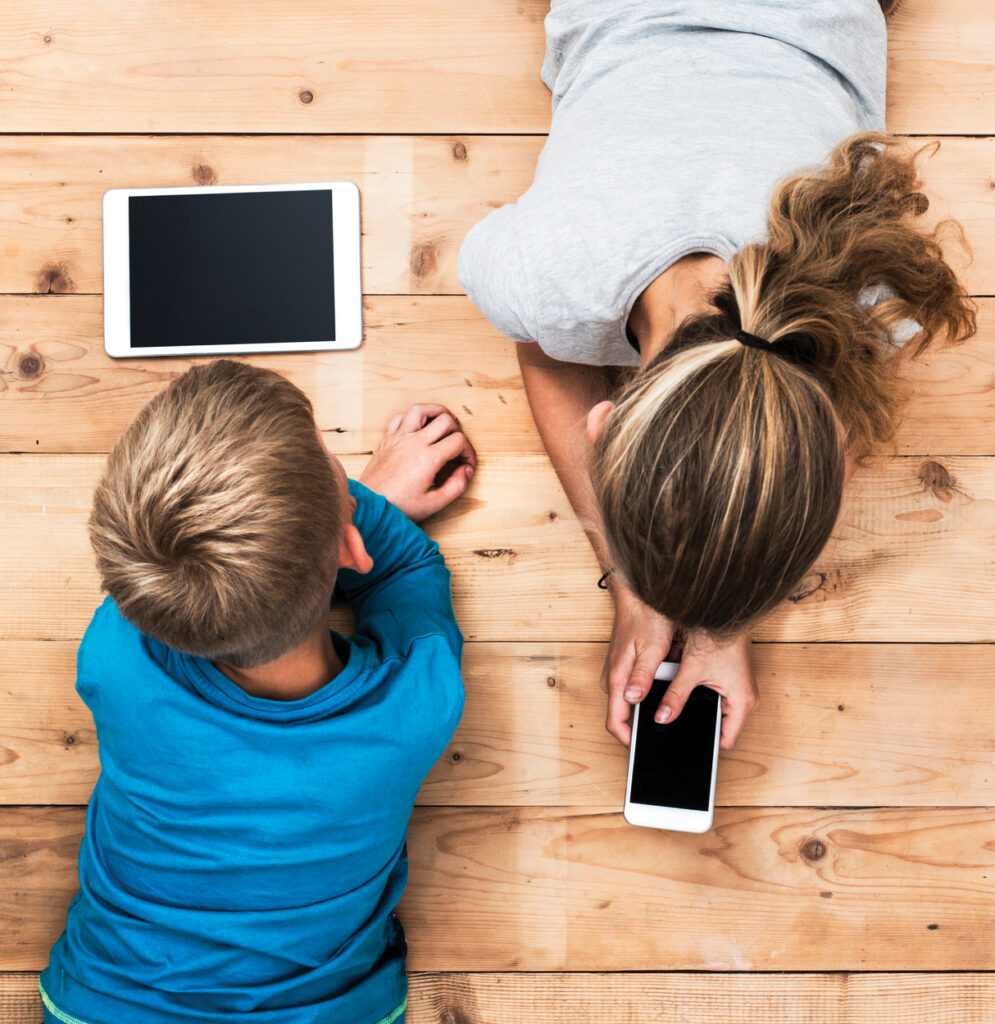“We are limiting screen time because future research is going to show negative impacts of screens and social media on developing brains.” Insert eye roll from 3 boys who sometimes wish I wasn’t a therapist. Kids born in 2007, the iphone release year, are now 17 and old enough for us to begin understanding the impact of smartphones and social media on the brain moving through puberty. In the book The Anxious Generation, Jonathan Haidt explores research emerging since 2016 showing a drastic (up to 150%) increase in anxiety, depression, and suicidal thoughts/behavior related specifically to smartphone and social media access before and during puberty.
Most people are seeking dopamine through smartphones and most are struggling to manage phone use well. However, there is a unique detrimental effect of smartphones and social media on those below 16. Parents encourage kids to set boundaries for themselves but developing brains are not capable of setting boundaries with devices and platforms designed for addiction.
Culture has shifted toward giving kids smartphones earlier as tools to communicate, track location, and to feel safe. The resulting cultural norm isolates kids from significant social interaction when families delay introducing smartphones. No parent wants their child to be excluded, socially isolated, or bullied for being the “only one.” Parents find themselves in a no-win situation of choosing between earlier phone access or their child being left out.
Often when change is needed, the “change is me.” You have the power to make a change for yourself without external input. For example, you can decide your child needs phone boundaries and you can use Screen Time or other software to create time and app boundaries. You have the power to decide the age your children will get smartphones. On some level, managing smartphone exposure for kids is a “change is me” situation for each family.
Other times when change is needed, the “change is we.” You make decisions for individual change and still find yourself within systems challenging the change you’re working to make. For example, you decide not to grant smartphone access until age 14 resulting in social isolation for your child. You can make the decision despite uncomfortable results. However, it could be more effective to take a “change is we” approach,” banding together with other parents to postpone smartphone access helping reduce social isolation as a group.
Embracing personal empowerment in decision making is important and, in many cases, exactly what you need to make meaningful change. The combination of individual change and collective change is sometimes necessary to create large-scale cultural movement around issues like how phones and social media are impacting the mental health of kids. So, you see the challenge, but how do you start to engage change on a “me” and “we” level?
 5 “Me” and “We” Ways to Address Challenges of Smartphones and Social Media for Kids:
5 “Me” and “We” Ways to Address Challenges of Smartphones and Social Media for Kids:
1. Educate. Read The Anxious Generation by Johnathan Haidt. Listen to recent podcasts featuring the book. Invite other parents to read the book and discuss. Talk with kids about the research and upcoming boundary changes you will be making.
2. Evaluate. Evaluate current values and boundaries around phones/social media in light of research-based recommendations to delay smartphones until 14 and social media until 16. Notice daily screen hours. Observe and investigate without shame. Shame is not necessary for change.
3. Implement. Put values-based boundaries into place using whatever supports needed including Screen Time, boundary software, timers.
4. Collaborate. Collaborate with other parents to reduce social isolation for kids. Make parent pacts and follow through together.
5. Empathize. Change is hard. Let your kids know you see it is hard for them to have new boundaries and listen to their complaints with empathy while still holding your boundaries. Empathize with other parents as you all navigate parenting through hard decisions.
Individual and collective change can be challenging but very possible when you own your part and connect with others. Previously, parents didn’t know giving kids smartphone access could be damaging to mental health. New information provides new opportunities to set kids up for better emotional health foundations for life. As you navigate challenges of implementing change along your journey, connect with us at Journeybravely.com for counseling and coaching.





























































